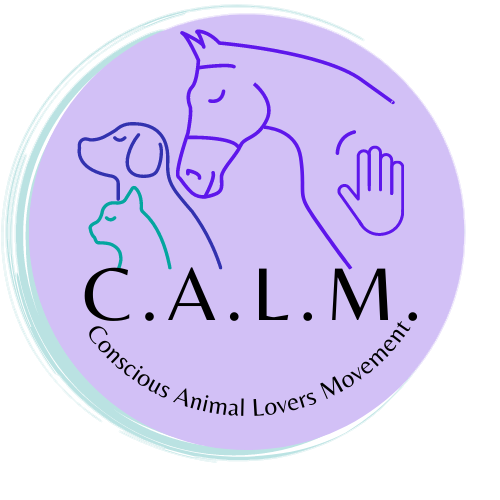Allen M. Schoen, D.V.M., M.S.
When you hear that your pet has been diagnosed with cancer, it sends a shiver down your spine, creates a knot in the pit of your stomach and an emptiness and deep sadness permeates your body, mind and soul. Next to hearing that you or a close friend or relative has been diagnosed with cancer, your long time furry companion having cancer can be almost as devastating, and to some even more so. What I would like to share with you in the next two columns of “The Healing Arts” are the thought processes that you can go through in choosing the best options for your buddy and the natural options that may prolong the quality and quantity of your pets life. When your veterinarian gives you that diagnosis, just take a deep breath, sit back and return to your center. Your pet cannot make a decision for themselves on what to do, so we have to play G-d. This can be a very stressful time, because you may get many different opinions from friends, family and people you might not even want opinions from. In my practice, I deal with chronic disease all the time and try to guide people through these emotionally challenging, confusing times.
There are many types of cancer and each one carries a different prognosis. Some require immediate emergency life saving surgery , just to stabilize them till you can make further decisions. For instance, one cancer, splenic hemangiosarcoma is a tumor of the spleen, most commonly seen in german shepherds, but certainly present in other breeds as well. It is not uncommon for the diagnosis to be made because all of a sudden your shepherd collapses from a hemorrhage from the tumor, they become very pale, collapse and may die. At that point, exploratory surgery is usually indicated and if the tumor has spread already to other organs such as the liver, the prognosis is extremely poor and euthanasia may be recommended. That is not unreasonable at that time. Though it is sudden, the decision is almost made for you which makes it a bit easier. Then one is left with the sudden loss and grieving. However, most cancers, you do have sometime to decide on what is the best approach for your pet, you and your family. Many factors are involved in the decision making process, from the effects of the therapy on your pet, financial considerations, stress on everyone and the long term prognosis.
Basically, your choices include surgery, chemotherapy, radiation therapy, complementary therapies including nutritional supplements, diet, herbal medicine, homeopathy, or doing nothing or euthanasia, or a combination of therapies. How do you choose between these options? The questions to ask your veterinarian, no matter which therapy they recommend, are:
- What is the success rate of this therapy for this particular type of cancer?
- What do you mean by success rate? What can you expect as far as survival time? How many have been treated with this approach and how many survived how long?
- Are there any side effects? If so, what are they? what percentage of patients have the side effects?
- If surgery is suggested, what is the recovery time? What are the risks of surgery? Is my pet in good enough condition for surgery? Are there other health problems that may preclude surgery?
- Are there supplements or things you can do at home to improve their health, support their immune system during the therapy?
- Ask your veterinarian honestly what they would do if their own pet had the particular type of cancer.
I only recommend surgery if one has a good chance of removing or at least significantly debulking enough of the tumor to improve quality of life and perhaps enable an adjunctive therapy to work better then. For instance, a client brought me their 14 year old bijon with a tumor in its nose. Two major cancer centers suggested removing half the face and following up with radiation therapy. Even with this aggressive approach, they felt the dog would probably not live longer than six months. Now, I really had to question what the quality of life of this dog would be like at fourteen years of age with half its face removed. I asked myself, would I do that to my own dog. I personally wouldn’t do surgery or radiation therapy at that age to my own dog. The owners decided to go with a more conservative approach of dietary changes, nutritional supplements and herbs. The dog is still happy 9 months later with very little change in the tumor size. We certainly did not cure the dog with this cancer, but he is living much longer than expected and is happy and having a great quality of life with lots of love! My own dog, Megan, who I talk about in the first and last chapters of my book “Love, Miracles and Animal Healing”, had bone cancer at 14 1/2 years of age. I elected not to amputate her leg or do radiation therapy, due to her age and also her arthritis in her hindlegs, but rather administered different nutritional supplements and herbs as well as some painkillers. She lived months longer and enjoyed every minute till the end. I felt her quality of life was more important than having her go through surgery and chemotherapy for perhaps a few months longer of life.
Radiation therapy can be beneficial for certain tumor types, but is certainly not without risks or complications. They may develop severe ulcerations in their mouths which can be quite painful. If it is just short term and the long term prognosis is good, perhaps it may be worthwhile. One has to weigh the advantages and disadvantages with each individual animal and their family. The same goes with chemotherapy. Chemotherapy actually has a good success rate with certain types of lymphoma in dogs. But for some other cancers, it may have no benefit and cause severe side effects.
Let’s now take a look at more natural approaches. For decades, people suspected that nutrients and nutritional supplements may be important for the prevention, control and treatment of cancer. Dr. Greg Ogilvie, a world renowned cancer specialist at Colorado State Veterinary School has conducted excellent humane research focusing on nutritional approaches to cancer. In the text “Complementary and Alternative Veterinary Medicine, Principles and Practice” edited by Susan Wynn and myself, Dr Ogilvie reviews some of this research and its applications for our four legged friends. Nutritional supplements can help in reversing or preventing the cachexia, or muscle wasting associated with cancer, they may reduce toxicity from chemotherapy and radiation therapy as well as decrease the side effects of these therapies if one chooses to use them. Supplements may also enhance patient recovery from surgery and radiation therapy. They may enhance the immune system and decrease the incidence of metastases. In our next column we will specifically look at particular supplements that you can use at home. The first step is to talk about the options with your veterinarian, perhaps a holistic veterinarian as well, and with all family members to decide what everyone feels would be best for your friend. That is the bottom line, what is best for them!
No article can replace the services of a trained veterinarian. This article is not intended to encourage treatment of illness, disease, or other medical problems by the layman. Any application of the recommendations set forth in this article is solely at the reader’s discretion and risk. You should consult a veterinarian concerning any veterinary medical or surgical problem. If a veterinarian is caring for your pet, for any condition, he or she can advise you about information described in this article.
I was recently featured in the documentary series “The Truth About Pet Cancer” filmed by the “Truth About Cancer’ series. This offers beneficial information on Pet Cancer. I agree with the general concepts within the information, though some of it may be considered too extreme by some. I share some of my more recent perspectives in the series.
If you would like to purchase the series for your own benefit or to share with friends dealing with cancer, you can purchase the series through the following link. In addition, you can purchase their “Truth About Cancer” human series through this as well. Click Here

